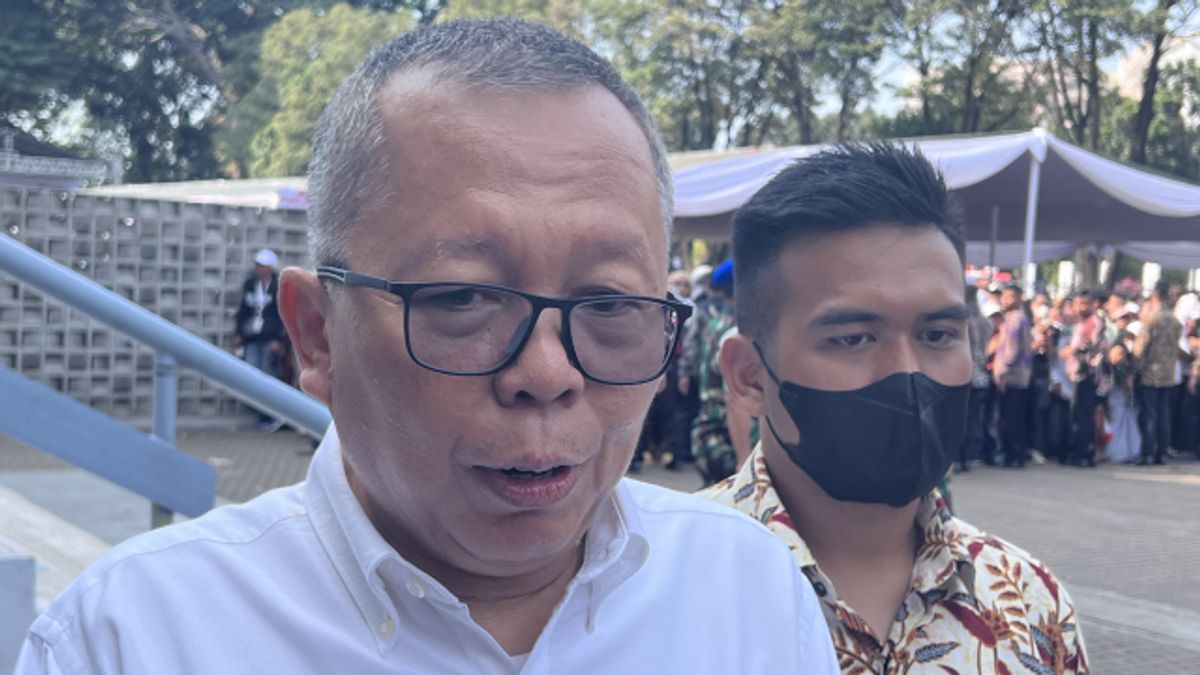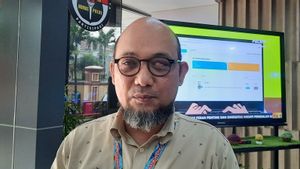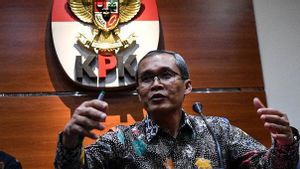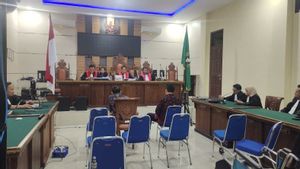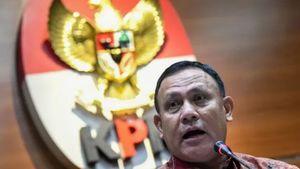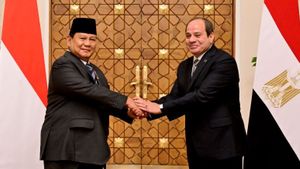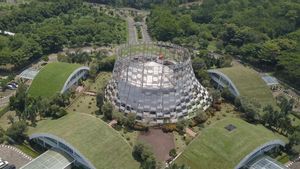JAKARTA - Member of Commission III DPR RI Arsul Sani considers that granting a judicial review request by the Constitutional Court to extend the term of office of the KPK leadership has consequences on the Law on the Constitutional Court (MK) regarding the term of office of the Constitutional Court judge. "This Constitutional Court decision brings consequences not only to the KPK Law, but also to the Constitutional Court Law which regulates the term of office of the Constitutional Court judge," said Arsul, quoted by ANTARA, Thursday 25 Thursday. Because in the decision on the term of office of the KPK leadership, Arsul said that the Constitutional Court emphasizes the principles of justice related to the term of office in independent state institutions which are considered institutional importance (having the same degree as explicit institutions mentioned in the Constitution). On the principle of justice, he continued, the Constitutional Court changed the term of office of the KPK leadership to five years as in the terms of the tenure of leaders or commissioners in other similar state institutions. "In addition, the Constitutional Court considers that the stipulation of the term of office of KPK leadership which is only four years is considered as the abuse of the authority of lawmakers, in this case the DPR and the Government," he said. Thus, again, the DPR and the Government which are currently discussing the Draft Bill. The fourth Amendment of the Constitutional Law must also adjust the term of the Constitutional Court judge by returning to the original law, namely five years and can be re-elected for once again with the same term of office. "Currently, almost all MK judges have served over five years, there are even 10 years," he said. According to him, adjustments to the MK judges's term are needed so that the principles of justice are enforced and the DPR and the Government are not judged as abuse of the authority of lawmakers, as is the consideration of the Constitutional Court in deciding the term of the KPK leadership.
اقرأ أيضا:
"This requires corrections to the Constitutional Court Law to be consistent with legal considerations and the principle of justice for the leaders of independent state institutions that are publicly selected, as judges of the Constitutional Court and commissioners of other state institutions such as the KPK, Komnas HAM, and so on," he said. Arsul added that Commission III of the DPR also obtained aspirations from civil society who assessed that the Constitutional Court's decision should only be applied to the commissioners of the KPK in the coming period. "Furthermore, related to the Constitutional Court's decision, I see that there needs to be a revision of the KPK Law again immediately. In addition, of course, we must discuss whether this Constitutional Court decision applies to the KPK for the present period or future period," he said. Previously, the Constitutional Court Panel of Judges stated that the tenure of the Corruption Eradication Commission (KPK) for four years was unconstitutional and changed it to five years. The decision was read out by Chief Justice of the Constitutional Court Anwar Usman in the trial of the pronunciation of the provisions and decisions broadcast on the YouTube channel of the Indonesian Constitutional Court, monitored in Jakarta, Thursday. Anwar Usman stated Article 34 of Law Number 30 of 2002 concerning the Corruption Eradication Commission which all reads, "The leadership of the Corruption Eradication Commission for Handling Positions for Four Years" contradicts the 1945 Constitutional Law of the Republic of Indonesia. In delivering the considerations, Constitutional Justice Guntur Hamzah stated that the provisions of the term of the KPK leadership for four years are not only discriminatory, but unfair when compared to commissions and other independent institutions. Hamzah's Governor compares the term of KPK's term with Komnas HAM. The term of the leadership of Komnas HAM is five years. Therefore, it would be fairer if the KPK leadership served for five years.
The English, Chinese, Japanese, Arabic, and French versions are automatically generated by the AI. So there may still be inaccuracies in translating, please always see Indonesian as our main language. (system supported by DigitalSiber.id)
